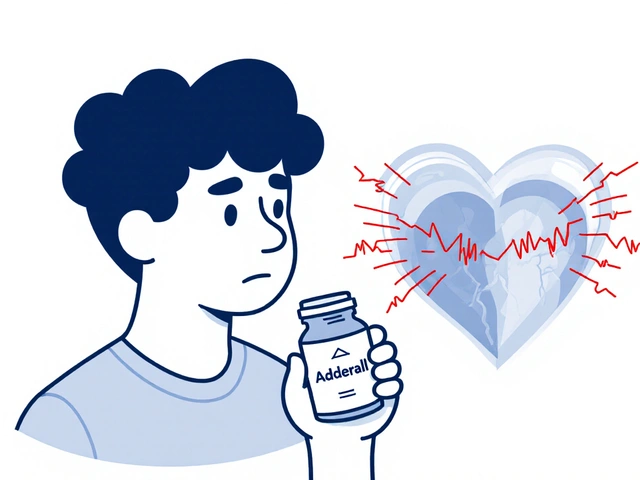Persistent cough: causes, home care, and when to see a doctor
A cough that won't quit is annoying and can be worrying. A "persistent" cough usually means it lasts more than three weeks. Common causes include postnasal drip, asthma, acid reflux (GERD), chronic bronchitis, smoking, and certain medicines like ACE inhibitors. Less commonly, infections such as pertussis or pneumonia, and serious conditions like lung cancer, can cause a long cough. The first step is spotting patterns: does it come at night, after eating, with phlegm, or only when you exercise?
Simple checks at home help narrow things down. Try a humidifier, drink more fluids, use honey for adults and children over one year, and avoid smoke or strong smells. Gargling salt water and sucking throat lozenges can ease irritation. If you have wheeze or tight chest, try a rescue inhaler only if you already have one prescribed. These measures often improve coughs linked to dry air, mild allergies, or viral coughs.
When to see your doctor
See a clinician if your cough lasts over three weeks, brings up blood, causes high fever, or comes with weight loss, severe breathlessness, or night sweats. Also check in if you smoke, have trouble swallowing, or notice swollen glands. If you take an ACE inhibitor, ask about switching drugs — they commonly cause a chronic dry cough. Your doctor may change medication and watch if the cough improves.
What tests and treatments to expect
At the clinic you might get a chest X‑ray, blood tests, spirometry (breathing test), or a CT scan if needed. If infection is suspected, a sputum test or throat swab can help. Treatment depends on the cause: inhaled steroids or bronchodilators for asthma, antibiotics for confirmed bacterial infections, macrolides for whooping cough, and proton pump inhibitors for reflux-related cough. Cough suppressants can help short term, but treating the root cause matters most.
There are things you can do while waiting for an appointment. Keep your home smoke-free, use a clean humidifier, sleep with extra pillows if reflux wakes you, and avoid heavy meals before bed. For allergy-driven cough, a non‑sedating antihistamine or nasal steroid spray often helps. If you try over-the-counter meds, follow labels and check interactions with other drugs.
If you need trustworthy info, look for articles about asthma, GERD, and medication side effects on our site. Quick tip: keep a cough diary noting time, triggers, sputum color, and any medicines you take. That makes appointments more productive and speeds up the right diagnosis. Don’t ignore a cough that keeps getting worse — timely care can prevent complications and get you back to normal breathing faster.
If you have a persistent productive cough, bring a sample in a sealed container if your clinic asks. Note any recent travel, pets, workplace exposures, or new household illnesses. For smokers, quitting reduces cough quickly but takes weeks for full recovery. Ask your doctor about vaccines, including flu and pertussis boosters, which prevent infections that cause long coughs. Book an appointment early today.

As a blogger, I recently came across Bromhexine, a medication that has proven to be quite effective in treating post-nasal drip and persistent cough. I was amazed to learn that it works by thinning the mucus in the airways, which makes it easier to cough up and clear out. This not only helps to alleviate the discomfort caused by post-nasal drip, but also aids in reducing the frequency and severity of persistent coughs. I personally think that Bromhexine could be a game-changer for those suffering from these conditions. If you've been struggling with post-nasal drip or a persistent cough, Bromhexine might just be the solution you've been searching for!






